
Q. I have a 180-gallon planted freshwater aquarium that has been up and running for about four months. After battling some nuisance algae and getting my aquatic plants thriving I would like to try keeping discus fish in the aquarium. I have about 60 tetras of various species and some flying fox algae eaters. Do you think discus fish would be all right in a planted aquarium with that amount of pre-established fish? Also, what special considerations need to be taken when keeping discus?
Dave Zimmerman
Oakland, MD
A. During the years that I kept discus fish, I always found the fish did best when kept only with other discus. It seemed like the discus fish would begin feeding quicker and were more active when they were kept in a species-specific aquarium. Although I did have reasonable success keeping discus fish with other freshwater fish species, tetras were one family I found did very well with discus fish.
Given the size of your aquarium and the fact that you don’t have any other large aquarium fish, I think the discus fish would have a suitable home. Also, since the aquarium is planted, the discus should be able to find plenty of places to hide and spend time alone if they are stressed. It is not hard to tell if a discus is becoming stressed: Their color will turn dark or their horizontal stress bars will become visible and they will become lethargic, often refusing to feed. If you find when you introduce your discus fish that they are staying this way continually then you may want to consider removing some tetras or whatever fish is most active, as they may be stressing the discus.
The first special consideration that needs to be mentioned is temperature. Discus fish originate from, and do best at, temperatures at or above 82 degrees Fahrenheit. I always found that my animals did best at a temperature value of 86 degrees Fahrenheit, though with live aquatic plants you may want to stick to 82 degrees Fahrenheit. Keeping the temperature below 82 degrees Fahrenheit often results in prolonged and continuous parasitic outbreaks and proves fatal to the discus fish.
The next special consideration that needs to be kept in check is watching for and being prepared in the event of a Hexamita infection. Hexamita is the parasite most often implicated in hole in the head disease and has a horrible effect on discus fish. More often than causing the telltale holes in the lateral line, Hexamita will cause discus to become very emaciated, stop feeding, turn a dark color and eventually perish. Luckily though, this parasite is easily treated with the use of an antibiotic called Metronidazole (Metro). The fact that Metro is a treatment made for mammals means it works best at a temperature of 90 degrees Fahrenheit or higher. Discus fish can tolerate those high temperatures for a short period of time though your aquatic plants cannot, so having a hospital aquarium ready would be necessary.
Some people become very concerned with pH values when keeping discus fish. I have found that since 90 percent of the fish sold in stores are bred and raised in captivity, just about any pH will do as long as the fish is properly acclimated. Although a pH of about 6.8 to 7.2 often serves best for discus keepers in most situations. The last precaution I can give is being aware of the infamous “discus plague.” This disease, thought to be a virus of Asian origin, can wipe out entire breeding stocks of discus fish in a matter of days. Its symptoms include listlessness, dark color and a peeling slime coat. Also, purchasing your fish from a single reliable vendor can almost guarantee that you will not have to deal with this horrible plague.
While many aquarists boast about how difficult discus fish are to keep, I found them to be very hardy and easily managed. Frequent water changes, correct temperature and proper feeding will make certain your discus fish remain healthy. Oddly enough, these are the same aquarium maintenance rituals that most any species requires to thrive in our aquariums.
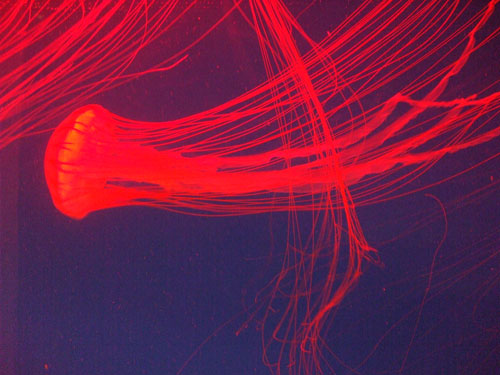 Proper Aquarium Lighting for your Aquarium Application
Lighting, just like filtration and heating, is an essential
Proper Aquarium Lighting for your Aquarium Application
Lighting, just like filtration and heating, is an essential
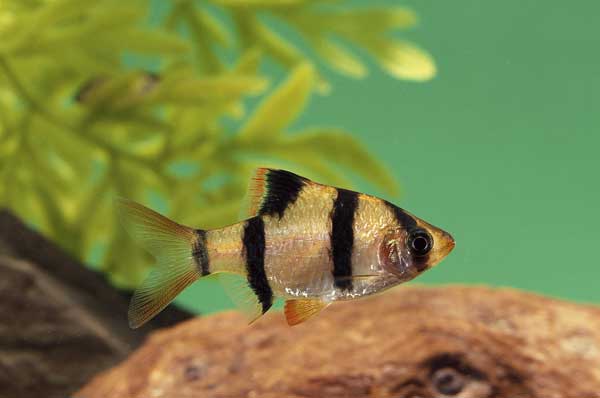 5 Great Freshwater Aquarium Fish
You have your aquarium all set up. The filter has been on fo
5 Great Freshwater Aquarium Fish
You have your aquarium all set up. The filter has been on fo
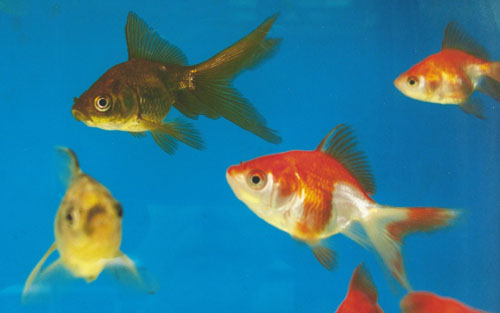 Aquarium Water Chemistry for Goldfish
If you survey a group of aquarists, certainly a large portio
Aquarium Water Chemistry for Goldfish
If you survey a group of aquarists, certainly a large portio
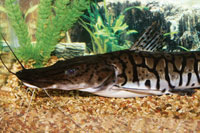 Shovelnose Catfish
Click image to enlargeShovelnose catfish.
Q. One of the w
Shovelnose Catfish
Click image to enlargeShovelnose catfish.
Q. One of the w
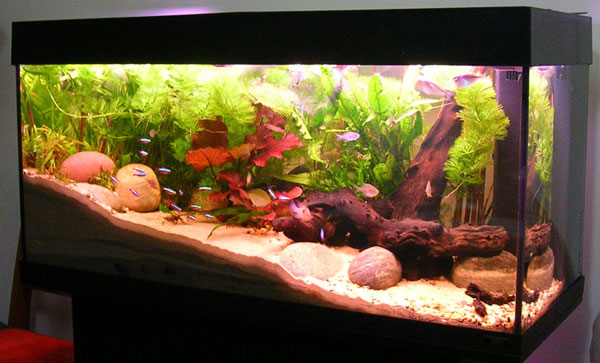 Freshwater Aquarium Beginners Guide
Aquariums are beautiful additions to virtually any living ar
Freshwater Aquarium Beginners Guide
Aquariums are beautiful additions to virtually any living ar
Copyright © 2005-2016 Pet Information All Rights Reserved
Contact us: www162date@outlook.com